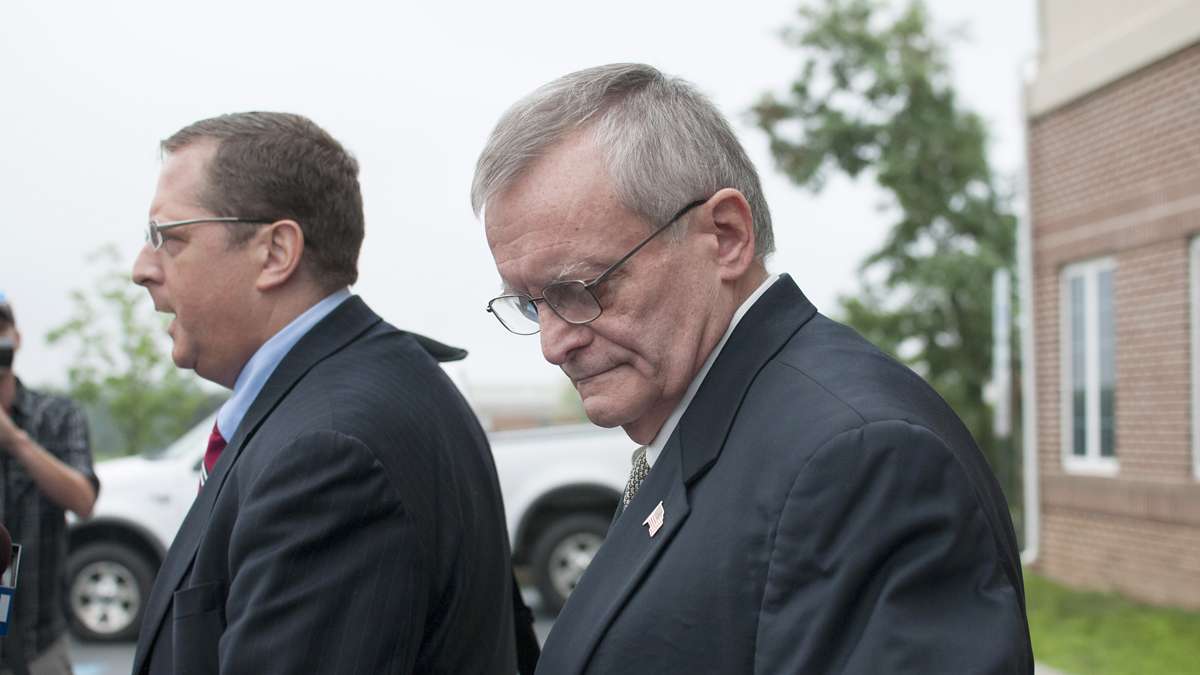Judge tosses hundreds of charges against longtime Harrisburg mayor

Former Harrisburg Mayor Steve Reed (right) and attorney
More than 140 criminal counts remain against former Mayor Stephen Reed, including one linked to his role in city finances.
But 305 others — bribery, corruption and racketeering, among them — have been dismissed because the state didn’t charge Reed in time, a judge has ruled.
For those crimes, the statute of limitations runs between two and five years. But Pennsylvania law extends the timeline when the defendant is a public official.
Reed’s lawyers argued charges must be filed while the person’s in office or within five years thereafter.
The state Attorney General’s Office disputed that, saying the five-year window refers to when the official supposedly committed the crime.
Judge Kevin Hess sided with the defense on that question.
But he blocked the attempt to dismiss another 142 receiving stolen property counts, for artifacts seized from Reed’s house and storage space by state investigators last summer.
Reed’s lawyers didn’t try to get rid of two charges.
One, for tampering with evidence by allegedly unloading antique guns on a Gettysburg merchant as investigators closed in. Another is theft by deception, for actions taken during financial dealings.
At the time, officials pledged more arrests, but that hasn’t happened.
Decision details
Limiting the public official extension to crimes committed while someone’s in office or within five years afterward would mean no additional time for crimes with a five-year statute of limitations committed by officials on their way out, as alleged in many counts against Reed, the state’s lawyers said at the last court hearing.
“The fact … that a statute presents with an anomaly does not mean that we are at liberty to rewrite it,” Hess stated in his decision.
This is how state law reads:
If the [statute of limitations] has expired, a prosecution may nevertheless be commenced for … any offense committed by a public officer or employee in the course of or in connection with his office or employment at any time when the defendant is in public office or employment or within five years thereafter, but in no case shall this paragraph extend the period of limitation otherwise applicable by more than eight years.
What’s next
The AG’s office hasn’t decided whether to appeal Hess’s ruling on the expired statute of limitations for 305 counts.
“We have not yet had the opportunity to thoroughly review the judge’s decision. We will decide upon the appropriate course of action after that review is complete,” said spokesman Jeff Johnson by email.
WHYY is your source for fact-based, in-depth journalism and information. As a nonprofit organization, we rely on financial support from readers like you. Please give today.



